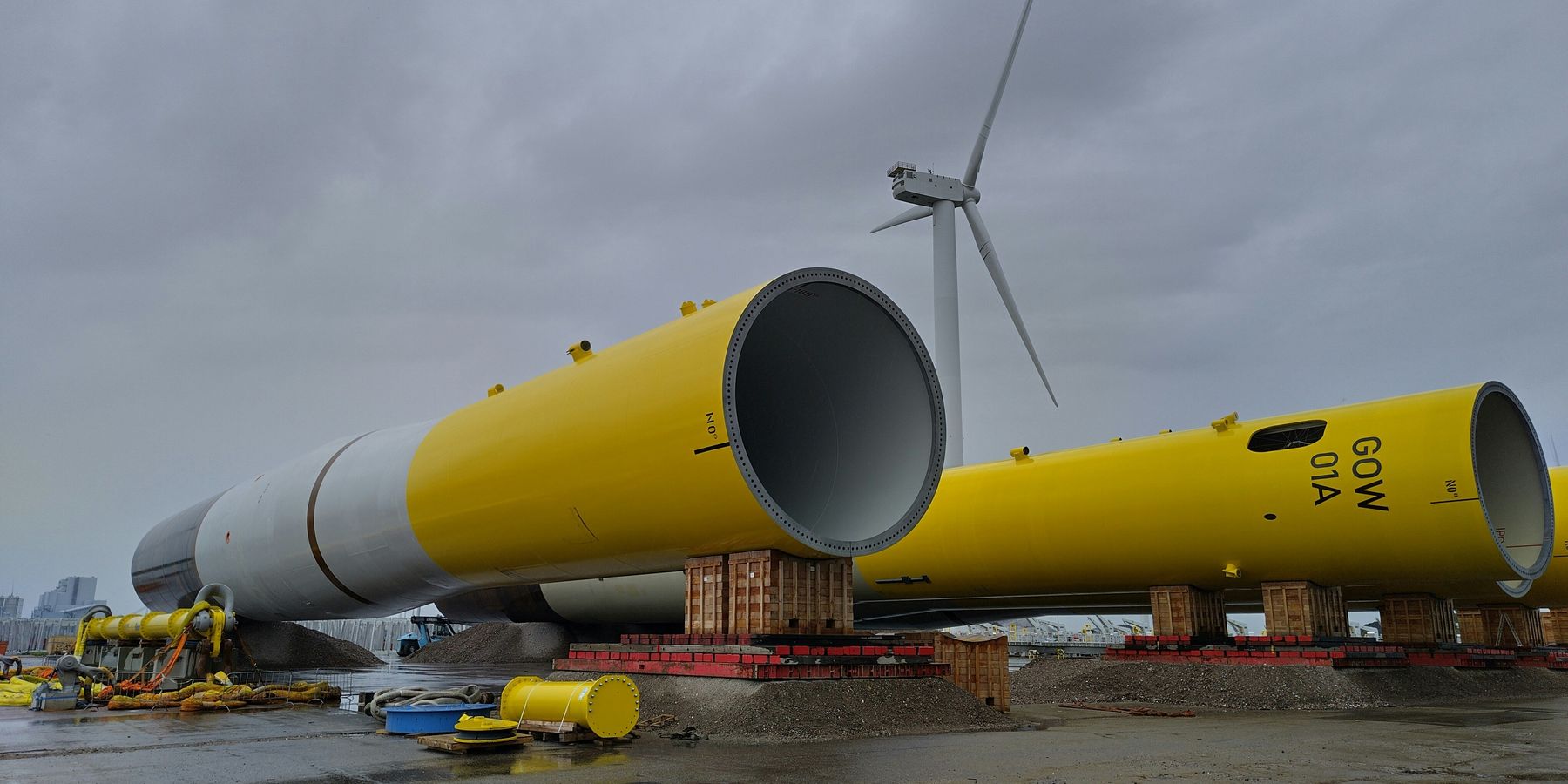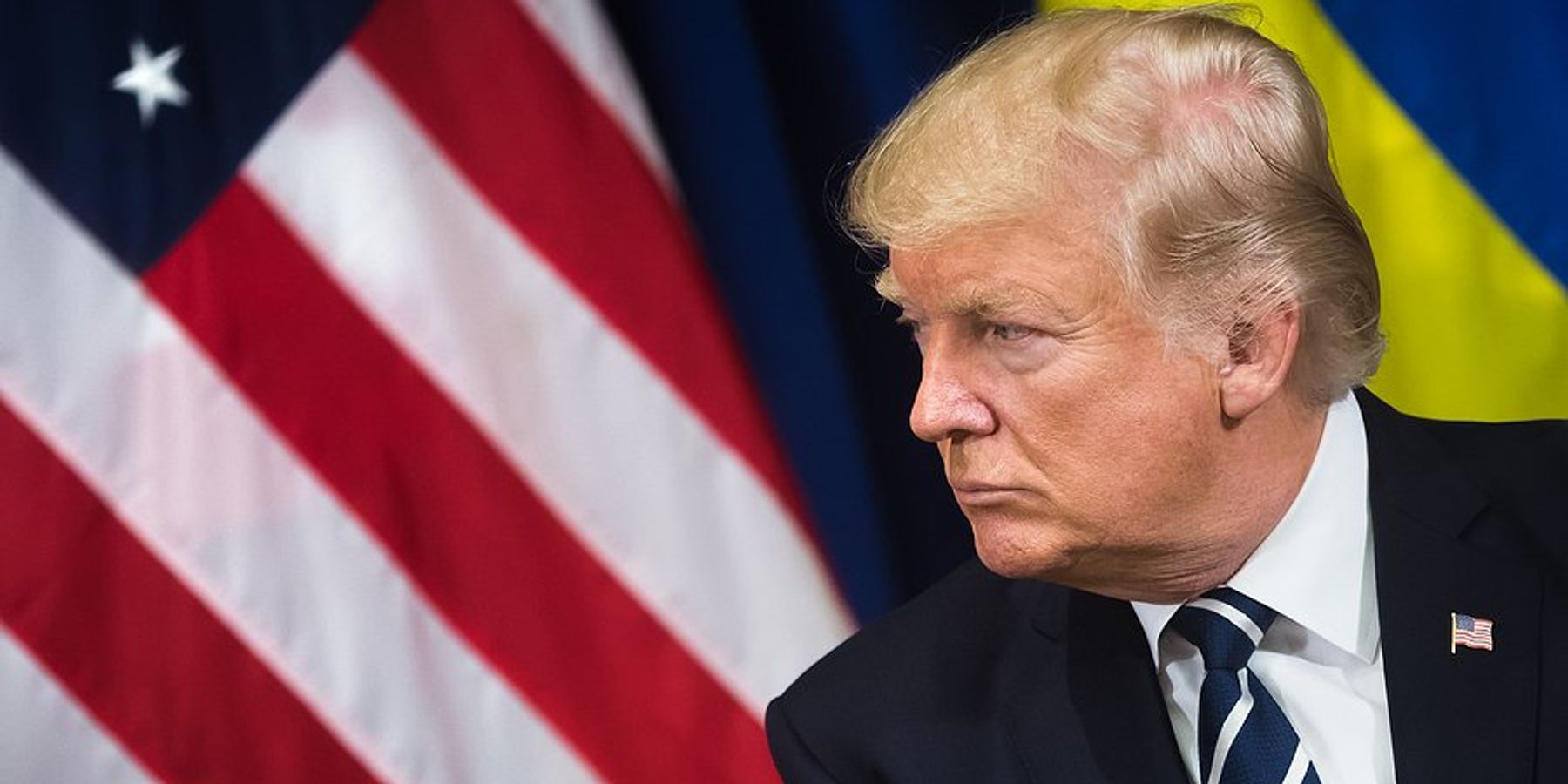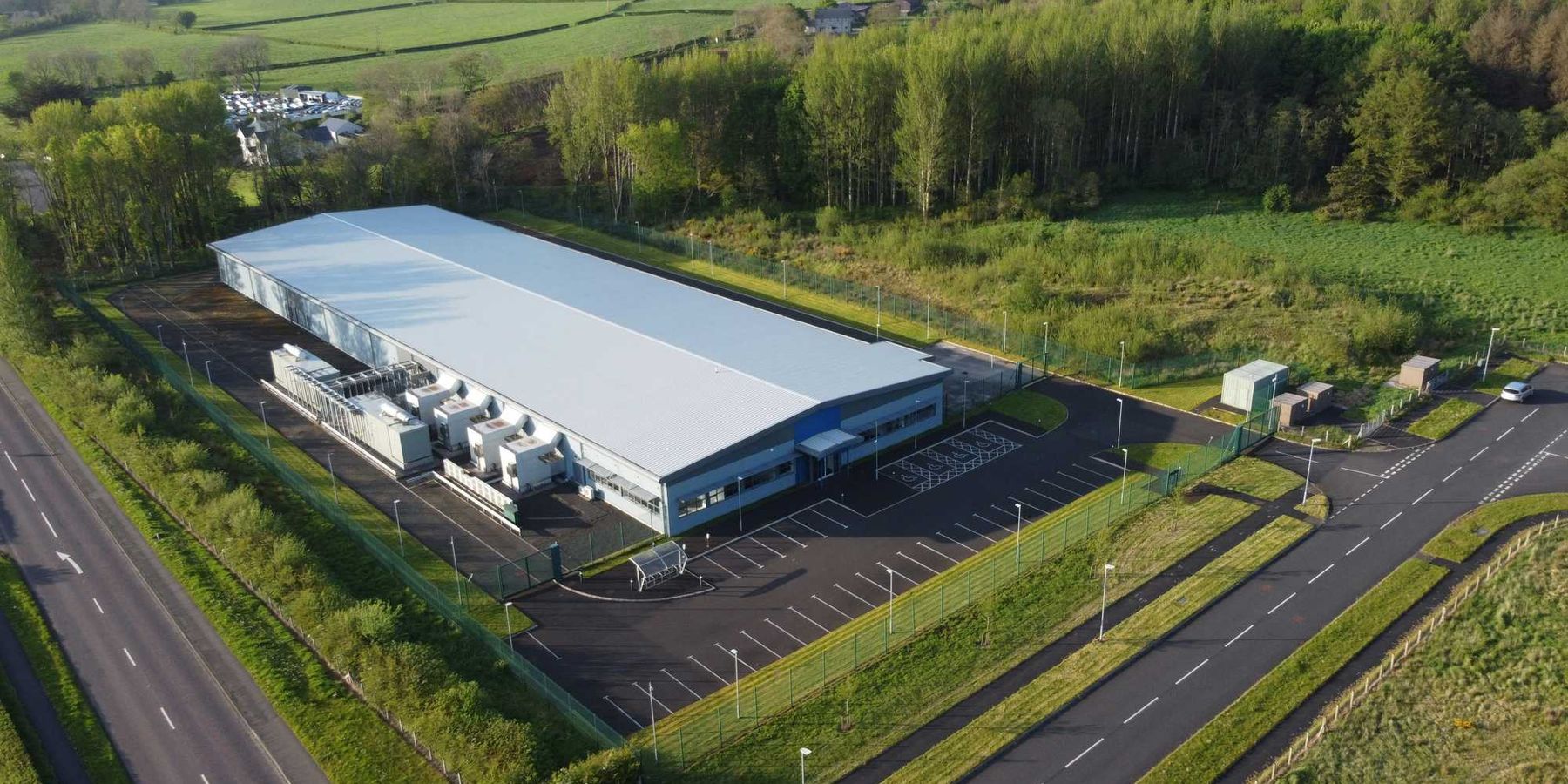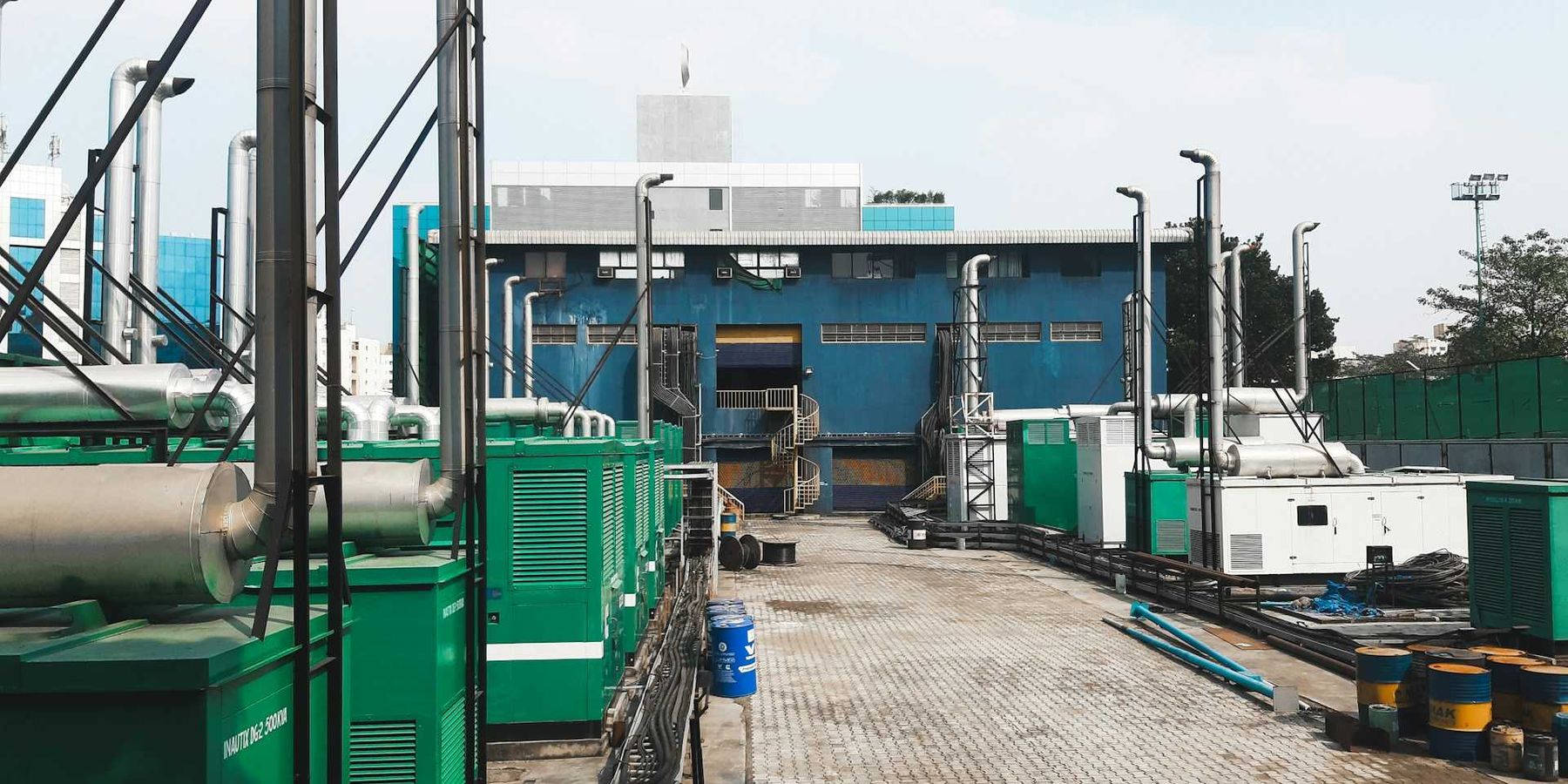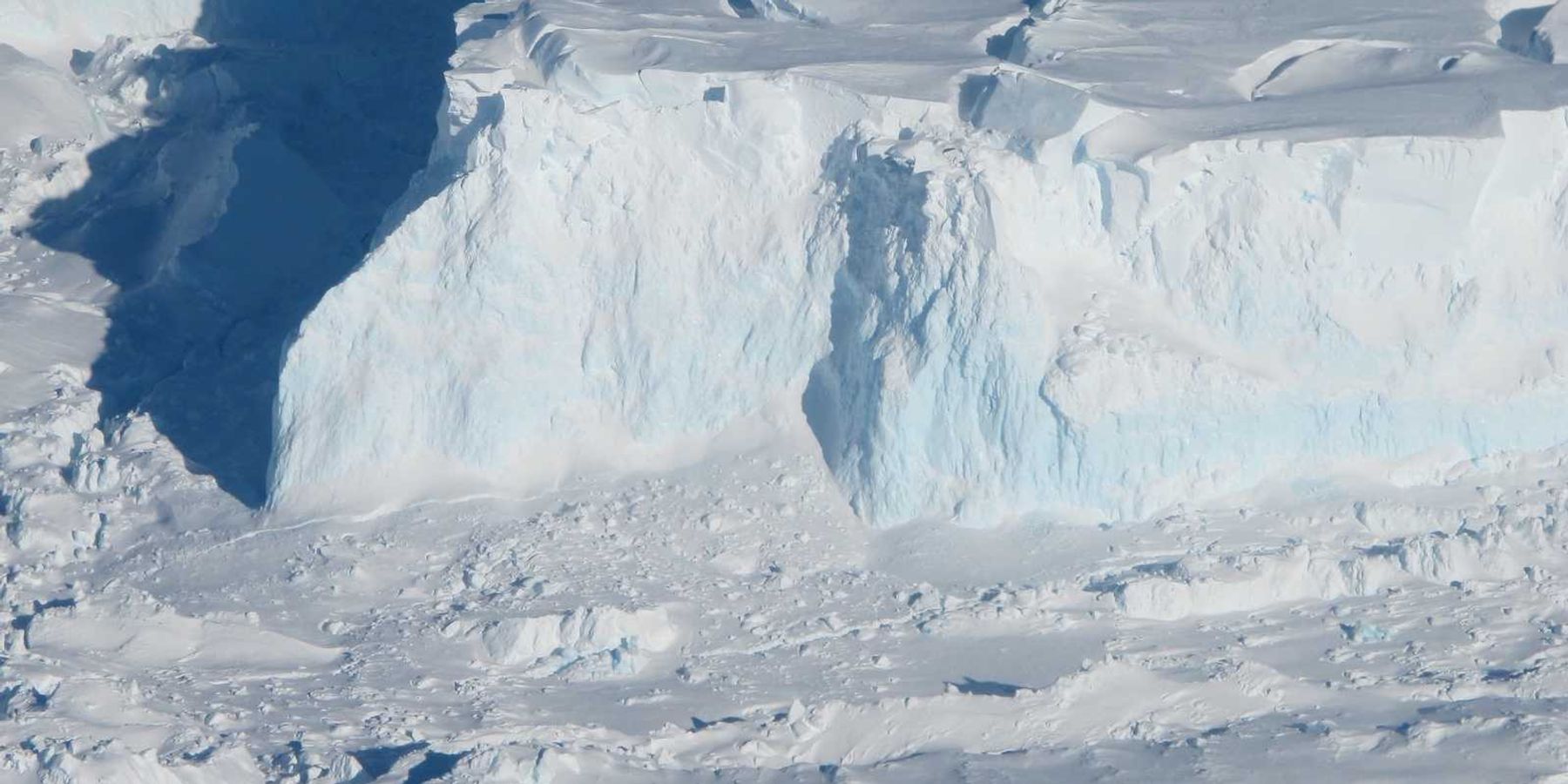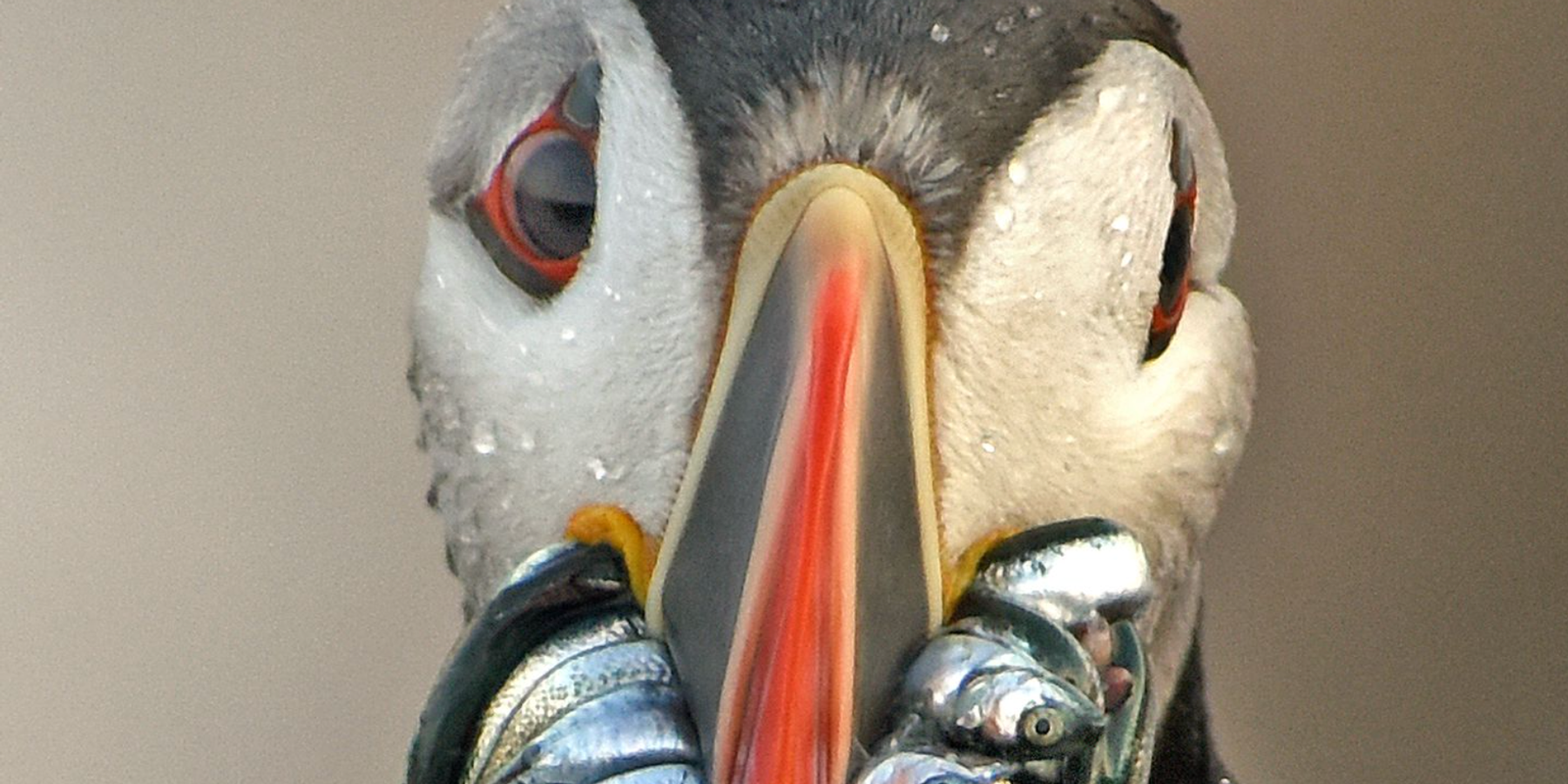
Solving the climate crisis will help both ‘sacrifice zones’ and ‘cute’ puffins
Curbing pollution for families in Chicago calms the climatic conditions that drive fish away from puffins half a continent away.
When I tell bird-loving audiences what puffins mean to me, I start with the expected.
I show my photos of them either with fish in their orange, yellow, and blue-black beaks, gathered in kaleidoscopic multitude, or nuzzling in affection. I always get oohs, ahhs, and a choral, “sooooo cute.”Then I show images that are not so cute.
They are of mothers and children of southeast Chicago, with toxic industries at the end of their block. They live in what environmental justice advocates decry as “sacrifice zones.” In the last decade alone, this primarily brown and Black community has suffered choking clouds of dust from oil refining byproducts, lead in lawns, and neurotoxic manganese dust in the air. Just last month, the Department of Housing and Urban Development blasted an attempt to relocate here a scrap metal recycling facility ousted from the predominately white north side. HUD said it was an example of “shifting polluting activities from white neighborhoods to Black and Hispanic neighborhoods.
Environmental justice
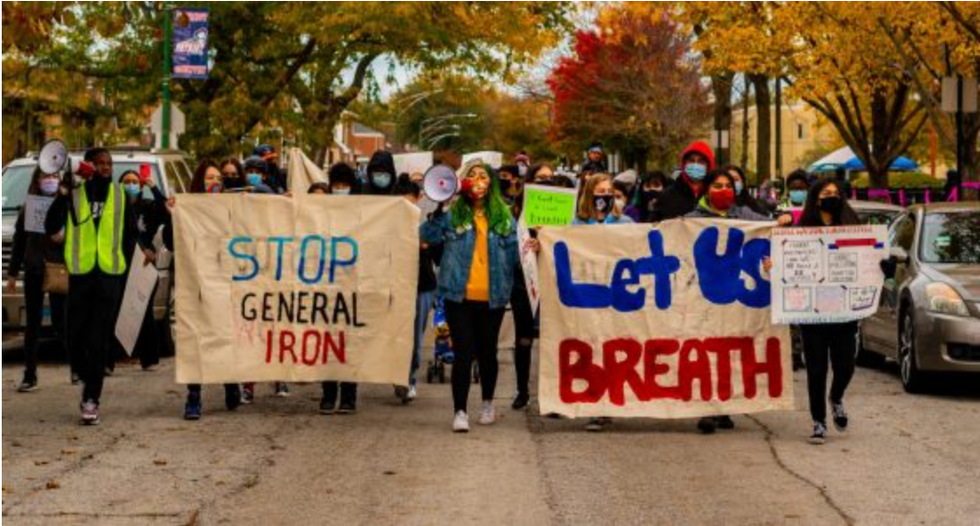
Activists march to stop an industrial metal shredder from relocating half a mile from two public schools in Southeast Chicago.
Credit: Chicago Teachers Union
I then give the audience a glimpse of the shift that should be happening. I show images from my coverage of offshore wind farms and facilities in Europe. I show them families of color from San Diego to Washington, D.C., who enjoy rooftop solar power through various programs. I show them Black and brown workers in the green economy, installing solar panels on roofs.
I then return to puffins. I say if you really care about the threats to them and whether they’ll be around for our grandchildren and great-grandchildren, then you must care about those families in southeast Chicago. Like thousands of birdwatchers, my journey with puffins began with simple admiration of a beautiful bird. Today, I see that their destiny is directly bonded to dumped-on families. They are bonded to the speed we curb the fossil emissions that scorch the planet and sear the lungs.
Puffins come back
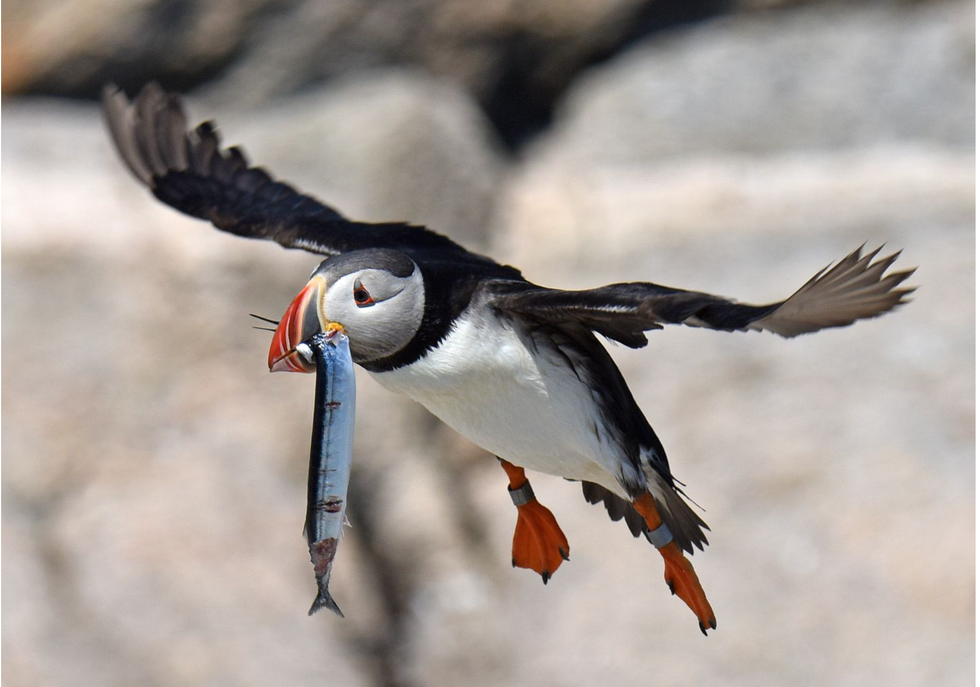
A puffin takes flight
Credit: Derrick Z. Jackson
My first story on Atlantic puffins was 36 years ago for Newsday, where I reported from Eastern Egg Rock, a tiny 7-acre island 6.5 miles out from Pemaquid Point in Maine. The rock was the site of the world’s first restoration of a seabird to an island where humans killed it off.
It was almost a fairy tale. Puffins were slaughtered off the island in the 1880s for meat and eggs. Nearly a century later, Steve Kress, a young summer camp bird instructor for the National Audubon Society, got it in his head to bring them back.
Beginning in 1973, he and colleagues brought chicks from Newfoundland more than 800 miles away. They fed them until they fledged into the Atlantic. Kress hoped that years later, when puffins seek islands to breed, they would pick Eastern Egg Rock instead of Newfoundland. To make the birds feel at home, his team put up decoys and mirrors.
Climate change warning
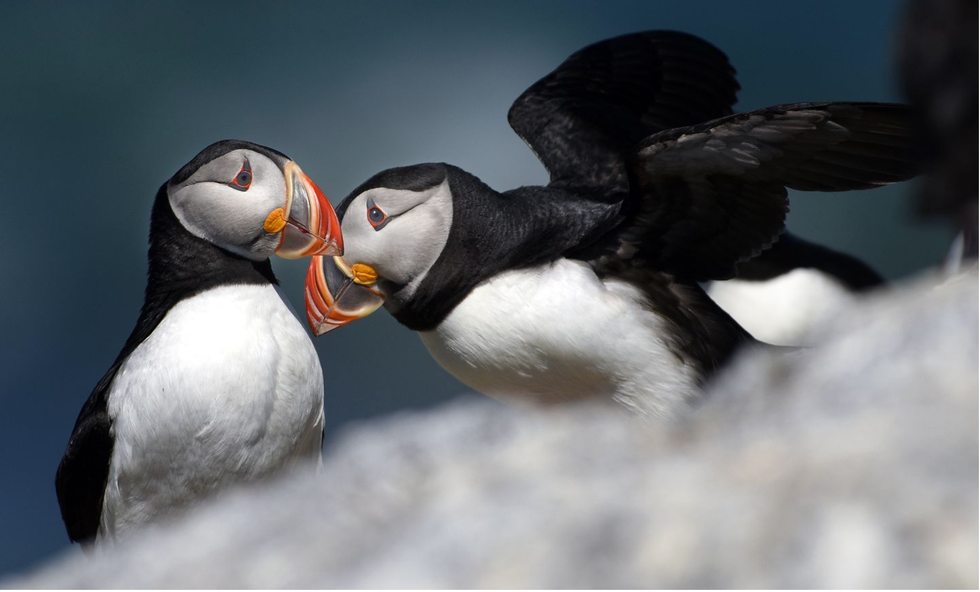
A pair of puffins at the Gulf of Maine
Credit: Derrick Z. Jackson
Kress succeeded. Puffins returned and began breeding in 1981. During my 1986 visit, I contributed to the cause by spotting a puffin zoom in off the ocean with herring in its mouth for a chick. The parent disappeared under a boulder to a nest not yet charted. Kress considered my discovery a big deal as the nest count in those days was still under 20.
Today, the bird is 1,300 pairs strong in the Gulf of Maine and an economic engine. Last year, 20,000 people circled Eastern Egg Rock on tour boats for a glimpse of the bird. But the fairy tale is now a drama. A symbol of what we can restore from 19th-century destruction, puffins are now a canary of 20th- and 21st-century self-destruction. Climate change is making these waters perhaps the fastest warming major body of ocean on the planet, as the Gulf Stream strengthens against weakening currents coming down from the Arctic.
Resilient puffins
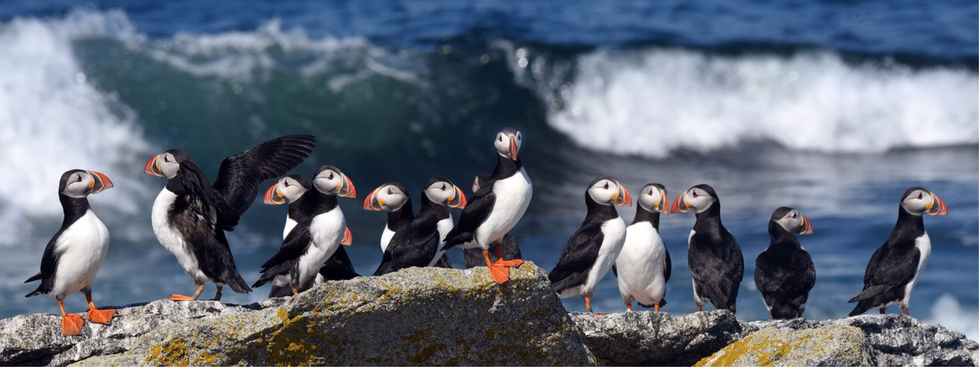
Credit: Derrick Z. Jackson
Last year was a nightmare with the warmest waters on record and intense storms also associated with a warming planet. Warm water drove the fish puffins and other seabirds need to feed chicks too deep or too far out to catch. Relentless rain triggered hypothermia. Between starvation and shivering, seabird islands were a climate war zone, with bird carcasses everywhere and some of the lowest chick productivity recorded by researchers.
Conversely, this current summer brought calmer weather conditions and plentiful fish. It was a reminder that there is still a chance of a forever-ever-after. In a recent conference call, researchers in the Gulf of Maine Seabird Working Group reported record numbers of tern species across many islands and a rebounding of puffin nesting. In my visit to the islands, I held a symbol of resilience in my hands, a puffin chick being raised by a 33-year-old parent. The parent is one of the last-known puffins that was plucked off Newfoundland as a chick and hand reared by Kress’s team.
'Injustice anywhere'
The question now is whether we assist such resilience with a resolve to cool their waters. It requires the same effort needed to preserve ourselves from deadly heat, storms, floods, desertification, and the daily soot shortening our lives. As one who covers many angles of the environment, formerly for the Globe’s editorial board and currently for the Union of Concerned Scientists, I no longer see a distinction between traditional notions of environmentalism and environmental justice.
Curbing carbon pollution for families in Chicago calms the climatic conditions that drive fish away from puffins. Every new wind turbine and solar panel installed is one less mountain of fossil fuel waste fouling city blocks and rural rivers and one less set of emissions inflaming the ocean. With the majority of the under-18 population now people of color, the conservation world by necessity must recruit new caretakers for puffins and threatened species from communities living with Superfund sites, lead poisoning, and asthma-causing particulates. That surely would spawn a new generation of environmentalists who cease to make distinctions between the climate threats to animals and us.
Just as Martin Luther King Jr. wrote nearly 60 years ago that “Injustice anywhere is a threat to justice everywhere,” stopping climate change for people on land saves puffins at sea. The puffin fairy tale can still have a happy ending, if we realize we’re all in the same sacrifice zone.
This story was originally published in the Boston Globe and is reprinted here with permission of the author.
Derrick Z. Jackson is co-author and photographer of Project Puffin and The Puffin Plan. He is a fellow at the Union of Concerned Scientists and a frequent contributor to Environmental Health News and The Daily Climate.

